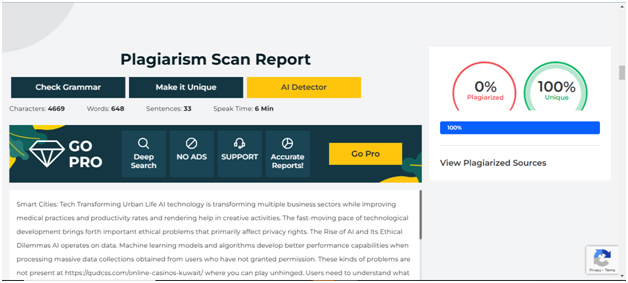AI technology is transforming multiple business sectors while improving medical practices and productivity rates and rendering help in creative activities. The fast-moving pace of technological development brings forth important ethical problems that primarily affect privacy rights.
The Rise of AI and Its Ethical Dilemmas
AI operates on data. Machine learning models and algorithms develop better performance capabilities when processing massive data collections obtained from users who have not granted permission. These kinds of problems are not present at https://qudcss.com/online-casinos-kuwait/ where you can play unhinged. Users need to understand what mechanisms exist to manage the use of their personal information by others. The protection of personal data stands as the top ethical difficulty which AI presents.
Privacy Risks in AI Development
The data collection process by AI applications includes sensitive personal data obtained through characteristics like facial features and vocal patterns. AI conducts user behavior tracking across multiple platforms including social media and shopping stores and financial organizations that typically provide minimal disclosure to users. Some key privacy risks include:
- AI databases face continuous security threats that make them susceptible to financial crimes and attacks that expose identities.
- Tracking user activities through devices occurs commonly within AI-powered systems although users lack consent to let their data be tracked.
- AI systems which receive their training from biased information sources maintain discriminatory patterns while conducting hiring functions along with their tasks in policing and lending operations.
- Since these dangers emerged there is now a need for precise ethical codes and associated regulatory systems to prevent them.
Data Misuse occurs when AI systems accumulate enormous quantities of personal data that users who do not provide consent still end up having their information exploited through various schemes including profit-making activities and surveillance functions as well as manipulation tactics.
The Role of Regulation and Transparency
Different public entities and private institutions establish regulations to control proper AI behavioral standards. The General Data Protection Regulation (GDPR) along with California Consumer Privacy Act (CCPA) serve as laws for European and California residents to find clarity on their personal data protection standards. Organizations need to disclose their personal data handling practices to offer customers increased control over their information’s collection and usage along with storage requirements.
Ethical AI: A Shared Responsibility
The implementation of legislation does not constitute a sufficient solution. AI developers need to implement built-in data protection features as a fundamental aspect of their technology development.
- AI system developers alongside business operators and system end-users collaborate to build systems that demonstrate responsibility in AI technology development.
- AI model developers need to make fairness alongside transparency and accountability their main development concerns.
- Businesses need to implement ethical AI frameworks for their applications so they cannot take advantage of personal data during operation.
- Users need to understand the data usage practices of AI systems and they can exercise their right to privacy controls.
- Society will achieve ethical AI progress through united action that guards against violations of fundamental rights.
Sketch a list that identifies essential ethics rules for developing AI systems.

- The requirements of AI systems should involve understandability combined with explainability standards.
- User privacy safeguard must include a system which provides full access control to personal data alongside straightforward ways for users to give their consent.
- AI systems must operate free from bias since discrimination and social prejudices should not be reinforced through AI technology.
- Organizations should bear the burden of AI impact responsibility through the management of intentional and unintended consequences.
- AI implementation requires developers to establish proactive measures that stop data breaks along with cyber-attacks.
The promise of AI exists in significant degrees yet such promise would become an instrument of exploitation when ethical protections are absent. The development of suitable privacy versus innovation measures needs a united effort between developers along with policymakers and users. Some may argue regarding the applicability of AI in all domains.
https://quillbot.com/ai-content-detector

https://plagiarismdetector.net/


